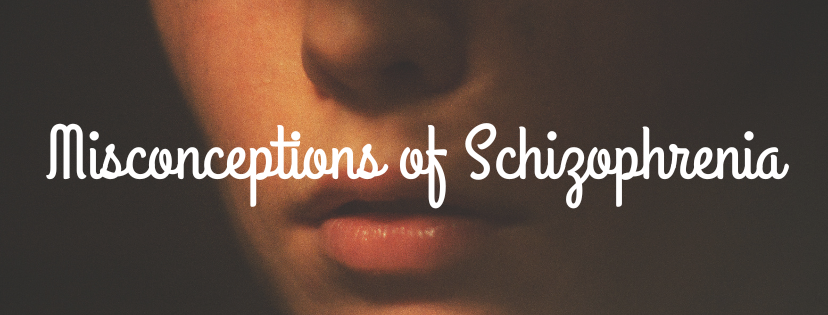Schizophrenia and other forms of psychosis often carry the most amount of stigma in comparison to other mental health conditions.
This is largely due to the misconceptions, myths and stereotypes that surround such conditions.
So let’s take a look at some of the most common misconceptions about Schizophrenia.
- Having schizophrenia means also having Dissociative Identity Disorder (DID)
A poll taken amongst American citizens found that 64% of people believed this to be true. DID is when people act as though they are two or more people – this is NOT a symptom of Schizophrenia, they are completely different conditions. - People with schizophrenia are violent and dangerous.
This is very often how the condition os portrayed in the media and in TV shows and movies however this is not the case in real life. While, yes, people with schizophrenia can be unpredictable at times, in most cases they are NOT violent, especially when they have the help and support that they need. Sadly, those with the condition are much more likely to harm themselves than those around them. - People with schizophrenia are not smart.
Some studies have indicated that those with schizophrenia have trouble when it comes to the testing of mental skills such as attention, learning and memory – but this does not mean that they are not intelligent.
Many creative and smart people throughout history have had schizophrenia, such as Syd Barrett – the founder and musician of Pink Floyd and Vincent Van Gogh – the very famous artist! - You cannot hold down a job if you have schizophrenia.
While the condition can make it more difficult to get and hold down a job, it is certainly not off of the cards. There are many people with the condition who, when under the right treatment, are able to find a job and work in an environment that suits their skills, abilities and their needs. - People with schizophrenia belong in long-term hospitalisation.
This is most certainly NOT the case for many people with the condition. Times have changed and there are much better treatments available today which allow people to continue to live their lives as an out-patient.
Many people with schizophrenia will undergo a variety of treatment which may include short-term or long-term hospitalisation, but with the right medication and support, this is very unlikely to last forever.
I am sure that these are only a fraction of the misconceptions that are tied to schizophrenia, however I wanted to highlight these with them being the most common. It is important that we remember that we are all individuals, that conditions such as this can affect people in different ways, and that they are still human and that they deserve help and support to enable them to continue to function to their best ability and that they need to be treated equally and fairly despite their mental health.


